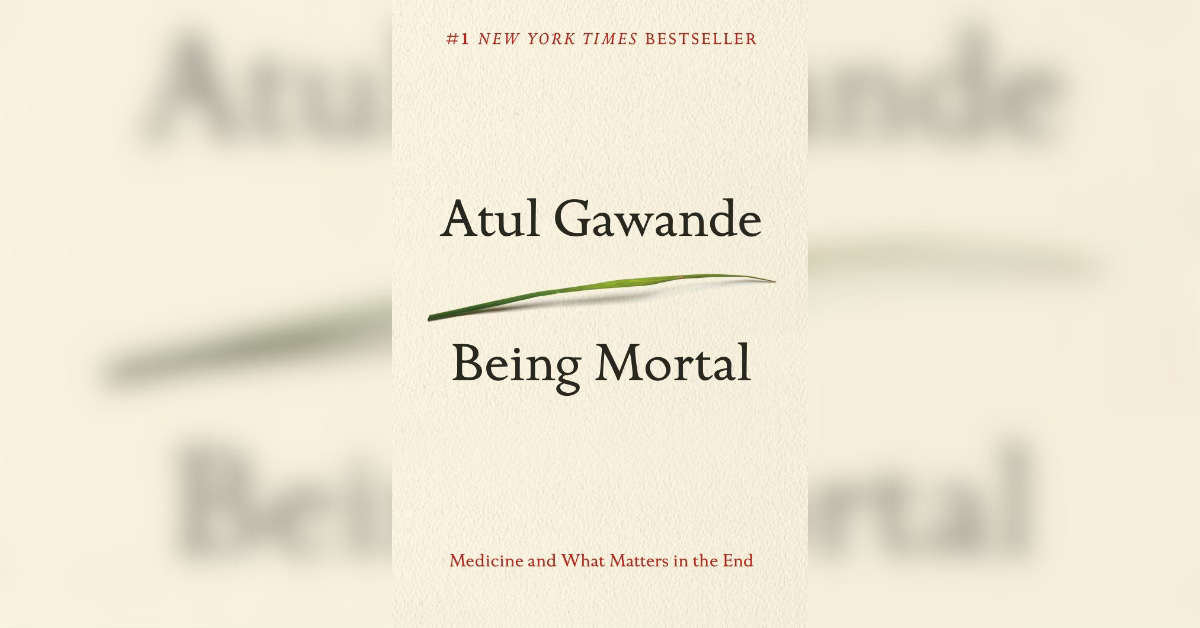Conversations That Matter
A discussion inspired by Being Mortal by Atul Gawande
Our recent Not Another Book Club discussion of Atul Gawande's "Being Mortal" quickly moved beyond medical critiques to something far more personal and urgent: the essential conversations about aging and end-of-life that many of us are all too keen to avoid.
Conversations That Matter
What struck me most from our discussion wasn't Gawande's critique of medical systems (though that's certainly valuable), but rather his implicit plea for families to start talking - openly, honestly, and early - about what really matters when time grows short.
These are conversations that many of us tend to avoid, or think "we'll talk about this when the time is right" - only to find that such a time never seems to arrive
These conversations matter because:
They help clarify values and preferences before crisis hits
They reduce the burden on family members who might otherwise have to guess what their loved one would want
They create space for meaningful connection before cognitive and physical decline start to get in the way
They give the space for the more nuanced type of planning that contributes to preserving dignity and autonomy when things get more difficult
Why Are These Conversations So Hard?
We explored a number of the challenges around having these kinds of conversations - drawing on our own experiences and trying to get beyond our shared discomfort of discussing death with someone for whom it is approaching:
These are typically multi-stakeholder, multi-layered conversations with high levels of uncertainty, about consequential decisions, and with lots of emotional baggage
As if this weren’t hard enough, they often require adult children to initiate difficult conversations with parents - inverting traditional family dynamics
We typically have little practice in navigating such conversations, and frequently lack the language for them too
There’s never the “right” time - too early seems unnecessary, during a crisis means there is little bandwidth, and afterward is too late
Starting the Conversations That Matter
Despite these barriers, we shared our experiences and discussed ideas from the book that we have found helpful in approaching such discussions:
Start early and iteratively: Rather than one big talk, we found this made more sense to us as an ongoing conversation that evolves over time. Each discussion builds on previous ones, making the topic gradually more comfortable.
Focus on what matters now: Instead of abstract long-term plans, Gawande suggests asking questions like “what’s your understanding of your situation” and "what is most important to you?" These simpler questions can act as doorways to deeper dialogue.
Look for natural openings: When someone mentions a friend's health crisis or a news story about aging, these can provide gentle entry points for related conversations. The more we talk about these topics, in any setting, the easier they become
Consider family dynamics honestly: Recognise what combination of people might be best positioned to initiate or participate in these conversations and where we might be best able to contribute
Build shared vocabulary: Books like "Being Mortal" can provide language frameworks and points of view that make these discussions more approachable. Consider sharing sections with family members as conversation starters.
Waiting for the "perfect moment" often means waiting too long. A bit like planting the proverbial tree, the best time for it is probably a while ago, and the second best time is now. These conversations are only likely to get harder the more they are postponed.
Finding Our Way Forward
What I value most about our book club discussions is how they apply the ideas in the books we discuss to our personal circumstances, and we drew heavily on our own recent experiences in this conversation.
How about you? Have you had conversations about aging and end-of-life care with your family? What approaches helped make them productive? If you haven't had these talks yet, what would help you feel ready to begin?
For me, having read “Being Mortal” I find I have more nuanced thoughts around the circumstances of my elderly relatives, and feel better equipped for these conversations, whether that’s with those elderly relatives or other members of my family system.
Ideally we would be building more capacity in our families, societies and institutions for these types of conversations, and this book is a great starting point. And if we need help along the way, as well as seeking out medical practitioners experienced in end-of-life care, there is an emerging profession (“death doulas”) who offer help and support to individuals and families who are navigating this final stage of life.
Above all, though, the strongest message we took away from this book is to start having these conversations!
Resources
Author's website: Being Mortal by Atul Gawande
Short conversation with Atul Gawande on CBS


